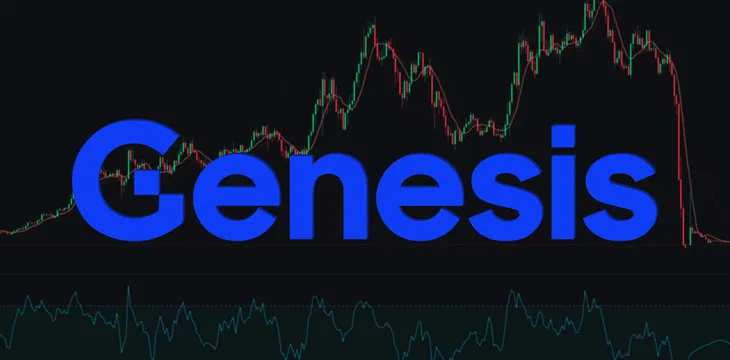|
Getting your Trinity Audio player ready...
|
Digital Currency Group (DCG) has brokered a deal to resolve the nearly billion-dollar fight between its Genesis digital asset lending platform and rival lender Gemini Earn.
Late Monday, Cameron Winklevoss, who along with his twin brother Tyler runs the Gemini Trust Company, announced via Twitter that Gemini had “reached an agreement in principle” with Genesis Global Capital, DCG “and other creditors on a plan that provides a path for Earn to recover their assets. This agreement was announced in Bankruptcy Court today.”
We’ll get to the specifics of the deal in just a moment, but if you’re just joining us, Genesis suspended withdrawals last November when it became clear that it didn’t have the cash to meet its obligations to customers. Those customers included some 340,000 Gemini Earn users, who had $900 million stranded on Genesis thanks to the Winklevii’s utter lack of judgment. All told, Genesis’s debts were over $2 billion.
Cameron said Monday that the deal was “a critical step towards a substantial recovery of assets for all Genesis creditors,” but warned that there was “still much work to be done…including further due diligence of Genesis financials and judicial approval of this plan.”
Genesis filed for bankruptcy last month, long after the quarrel sparked a major public slap-fight between the Winklevii and DCG boss Barry Silbert that saw both sides blame the other for their greed and obvious lack of business savvy.
The Winklevii routinely accused Silbert of failing to step up to make Genesis creditors whole. However, many Gemini Earn customers pointed out that the twins were themselves stupidly wealthy. And yet, until Monday, the Winklevii displayed zero interest in dipping into their own pockets to ensure no Gemini Earn customers suffered due to their blinkered pursuit of irrationally high yields.
Cameron said Monday that Gemini “will be contributing up to $100 million more for Earn users as part of the plan, further demonstrating Gemini’s continued commitment to helping Earn users achieve a full recovery.” It’s always worth noting that the phrase “up to” includes the number ‘zero,’ so perhaps don’t nominate the Winklevii for sainthood just yet.
Promise(sorry)
Genesis provided more specifics on the deal, which will involve refinancing the $500 million in loans that Genesis made to its parent DCG prior to last year’s wave of implosions. Those loans were due this year, but these will be replaced by a junior secured term loan worth approximately $500 million maturing in June 2024. This loan will consist of two tranches, one denominated in cash paying 11%, and the other denominated in BTC paying 5%.
Then there’s the controversial $1.1 billion promissory note that DCG provided Genesis to allow it to move off its books its liabilities stemming from last spring’s collapse of the Three Arrows Capital (3AC) crypto hedge fund. That debt wasn’t due until 2032, but DCG will now exchange the note for “convertible preferred stock to be issued by DCG as part of Genesis’s Chapter 11 plan.”
DCG is also giving its equity interest in Genesis’s brokerage unit Genesis Global Trading (GGT)—which wasn’t impacted by the collapse of Genesis’s lending unit—to Genesis Global Holdco, bringing all Genesis entities under the same holding company. Holdco will launch a sale of GGT and “explore other value-maximizing transactions” to help fund the agreement.
Yield platform Donut, another Genesis creditor, informed its users Monday that the agreed-upon plan “has a recovery rate of approximately $0.80 per dollar deposited, with a path to $1.00.” There remain “the unknown costs associated with the remainder of this bankruptcy,” but Donut is “rationally optimistic” that the deal will meet with court approval.
Similar estimates were cited by Dutch digital asset exchange Bitvavo, which previously claimed that DCG owed its customers €280 million($302.6 million). Bitvavo said Monday that customers should anticipate “an expected ‘recovery rate’ of between 80-100% which will be repaid in cash, digital assets, cash [more cash?] and convertible preferred equity notes in DCG.” Bitvavo previously assured customers that it would assume the risk on behalf of its customers, so this deal is a major Dutch treat for the exchange operators.
Silent Silbert
Silbert has yet to comment publicly on the creditor deal, reflecting a radio silence he has only infrequently broken since ‘crypto winter’ began freezing DCG’s various appendages. Prior to Monday’s deal, Winklevii had publicly called for his resignation, but it will be DCG shareholders—who are giving up significant equity to make this deal—that ultimately make that call.
Silbert may find himself in even bigger trouble should he be roped into the civil suits filed against both Genesis and Gemini by the U.S. Securities and Exchange Commission (SEC) last month. The SEC accused both companies of offering unregistered securities to the public, and while Silbert likes to claim that all DCG subsidiaries are run by their respective teams, it’s hard not to believe that there aren’t some incriminating emails with Barry’s name on them lurking in various in-boxes that the SEC might find interesting.
Notable for its absence in Monday’s deal announcement was DCG’s Grayscale group of crypto trusts. The trusts, including its flagship Grayscale Bitcoin Trust (GBTC), provide the overwhelming bulk of DCG’s revenue, primarily by whittling its shareholders’ holdings down to nothing through excessive management fees.
Silbert is said to be interested in flogging DCG’s less-profitable units to raise more cash and streamline its operations. These other assets include the Foundry USA BTC-mining operation and the CoinDesk media outlet/conference business. Whether these sales might satisfy DCG’s new debt obligations is anyone’s guess, but with the combination of DCG’s shrinking portfolio, investors’ shrinking equity, and the general sense that the ship has gone wildly off course, Silbert will be under significant pressure to walk the plank.
Follow CoinGeek’s Crypto Crime Cartel series, which delves into the stream of groups—from BitMEX to Binance, Bitcoin.com, Blockstream, ShapeShift, Coinbase, Ripple,
Ethereum, FTX and Tether—who have co-opted the digital asset revolution and turned the industry into a minefield for naïve (and even experienced) players in the market.

 08-30-2025
08-30-2025 





